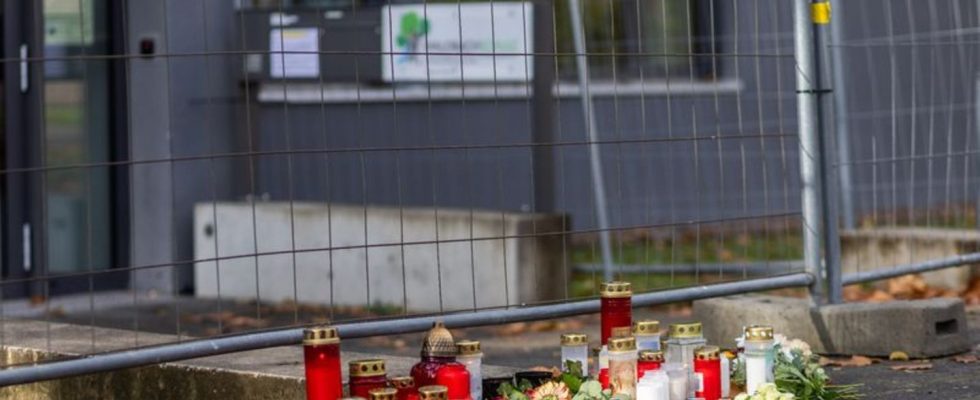crime
Expert clarifies the question of criminal readiness among young people
Flowers and candles lie in front of the Waldbachschule in Offenburg. A student is said to have shot another student there. photo
© Philipp von Ditfurth/dpa
Criminal proceedings against young people follow strict rules. For example, it is checked whether suspected perpetrators are mature enough to be able to understand their crimes. An expert reports what that means.
According to an expert, stay after a serious Only a few young people go unpunished for violent crimes due to a lack of maturity.
“Most young people see and feel the injustice of serious acts of violence,” said youth psychiatrist Marc Allroggen. The senior physician at the outpatient clinic and forensics department at Ulm University Hospital regularly assesses young people for crimes. “Even elementary school students usually know that it is forbidden to hurt someone with a weapon.”
A 15-year-old student in Offenburg is suspected of having shot a peer in a special needs school more than a week ago. The German suspect has been in custody since then on suspicion of manslaughter. The attack is said to have taken place in the suspect’s 9th grade class. The 15-year-old student is said to have come into his classroom and shot his classmate in the back of the head with a handgun.
Question about criminal liability
The question of eligibility for punishment depends on the level of development of the accused, said the expert. Specifically, this concerns the question of developmental delays and how they affected the commission of the crime. When it comes to culpability, as in adult criminal law, you have to find out whether there is a mental illness. The assessment is carried out in conversations with the accused or through other sources of information – and the parents may also be spoken to.
The readiness for punishment is determined, for example, by the behavior of the night of the crime. “Was there feelings of guilt or shame?” says Allroggen. These are indications that the alleged perpetrator was aware of the injustice. Conversely, it does not mean that there is no insight into guilt if both are not present. Ultimately, there must be the ability to understand that the act was socially unacceptable and would not be tolerated by the legal system.
The social environment, the relationship with the parents, the appearance in everyday life and the age of the friends are also taken into account. The development of young people is not homogeneous and linear. Therefore, a closer look at personality is necessary.

